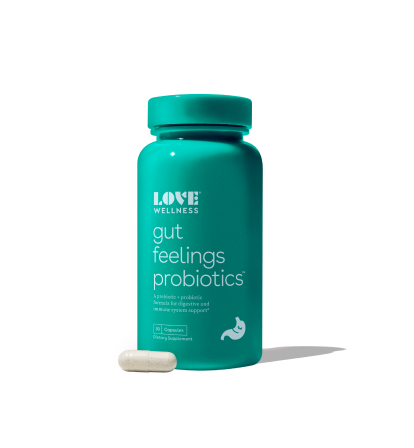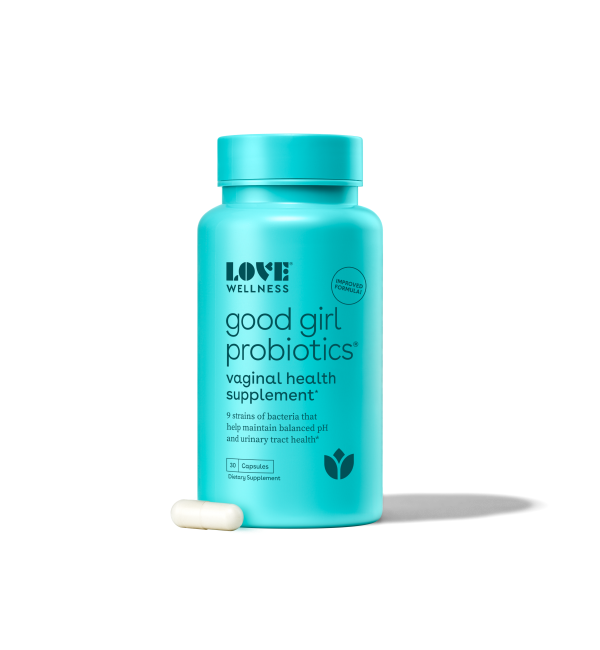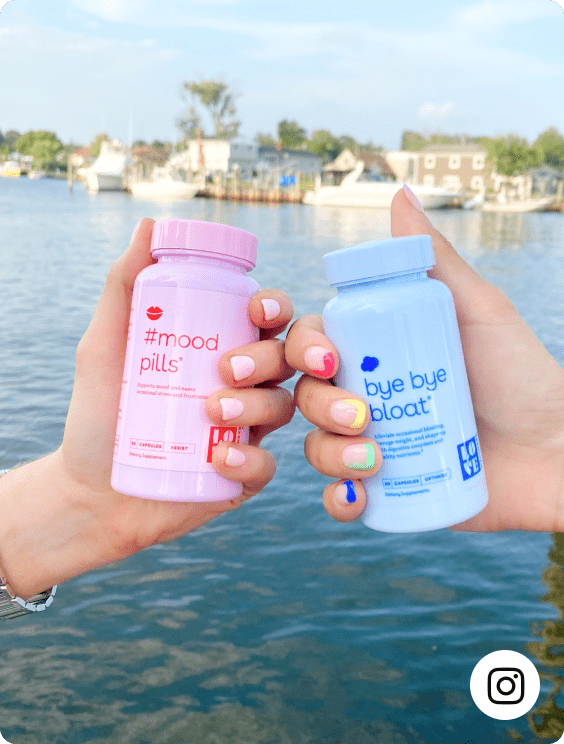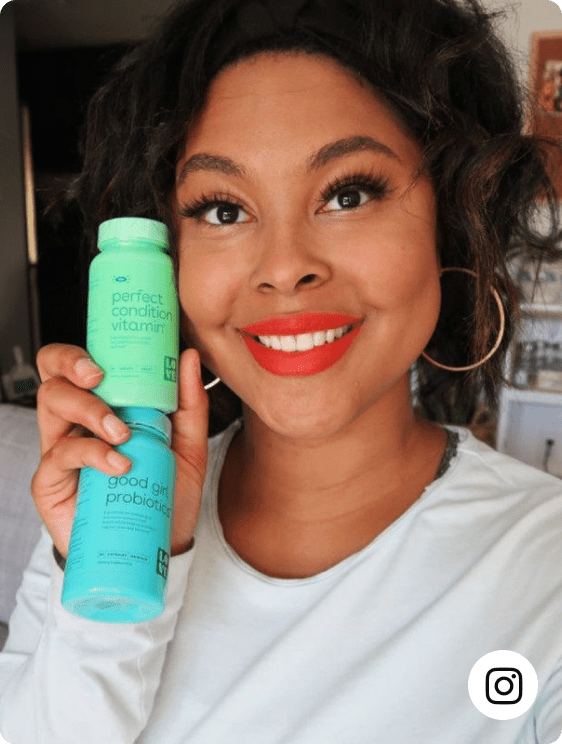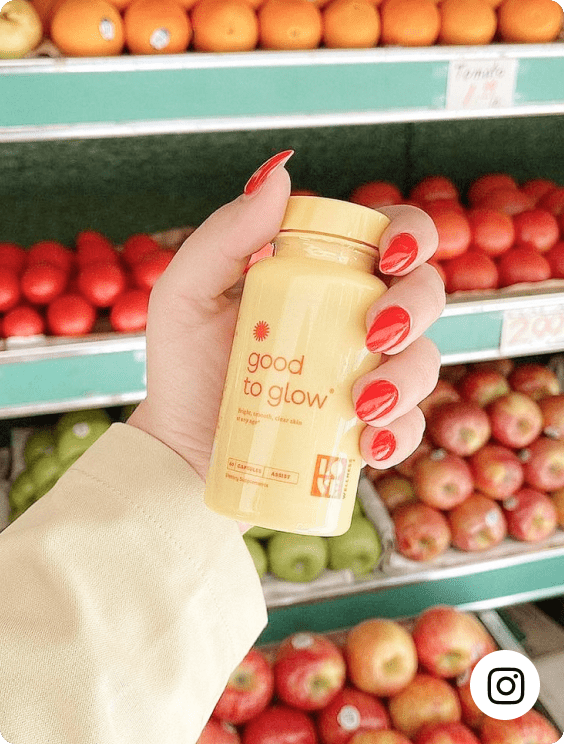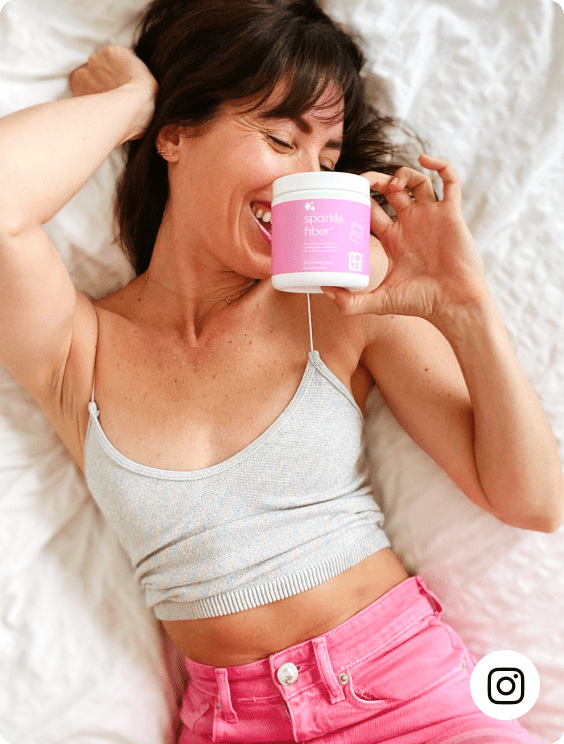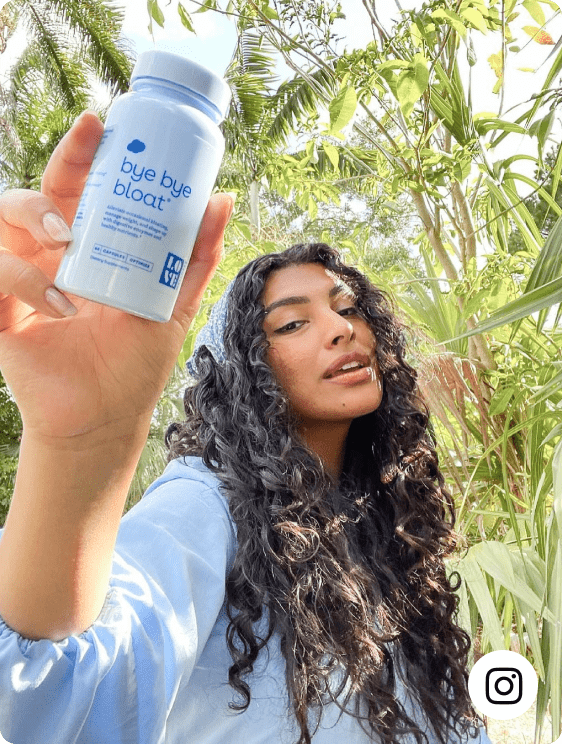With the gut health craze taking over social media, you’ve likely heard a thing or two about probiotics. These live bacteria are known to supply a number of incredible health benefits when present in the GI tract. Often taken as a supplement that helps colonize the digestive system with friendly microorganisms, a good probiotic can
- Boost the health of the gut microbiome
- Restore gut flora after an illness or treatment
- Support the immune system
Needless to say, probiotics are definitely worth all the hype — but what about postbiotics? Are they the same as probiotics? And which supplement is best? We’ll tell you.
Read on as we explore gut health to get the scoop on postbiotics and how they differ from the other “biotics.”
What Is the Gut and Why Is It So Important?
Simply put, the gut refers to your gastrointestinal system — AKA the gastrointestinal (GI) tract, digestive tract, and digestive system — and is made up of a group of important organs that includes the:
- Mouth
- Esophagus
- Stomach
- Liver
- Pancreas
- Gallbladder
- Small intestine
- Large intestine
- Colon
- Rectum
In other words, the gut is a pathway from your mouth to your rear. Gut health is the function and balance of everything that goes on there — and within the gut, there is the gut microbiome.
Home to trillions of microorganisms and their genetic material in the intestinal tract, the gut microbiome refers to this delicate micro-ecosystem of microbiota. Bacteria are the most common residents, but fungi, viruses, yeast, and protozoa also live in your gut.
Your microbes are more than just free-loaders — their extensive set of genes carry code for many essential functions that are imperative for your health. But some microbes are enemies rather than friends — and your dietary habits can help tip the balance in your favor.
What Exactly Does the Gut Microbiome Do?
Believe it or not, your gut microbiome performs many essential jobs, including:
- Extracting nutrients from food
- Making vitamins
- Strengthening the immune system
- Protecting the body from harmful pathogens
Your gut microbiome also plays a major role in digesting fiber from your food. After eating a fiber-rich meal, your gut bugs turn fiber into molecules — or metabolites — such as short-chain fatty acids (SCFAs).
These metabolites are vital for a wide range of things, including appetite, metabolism, glucose control, and the immune system. They work together with your immune cells to fight off disease and help to maintain the gut lining to keep invading pathogens at bay.
What Happens When the Gut Gets Disrupted?
Remember how we mentioned that some gut bugs are unfriendly? When you take care of your digestive system, the “good” gut bugs will take care of you by keeping the “bad” gut bugs in check.
But in some instances, the gut microbiome becomes disrupted or imbalance — aka dysbiosis — which ultimately gives the unfriendly microbes the upper hand. This can lead to a slew of uncomfortable issues, such as:
- Upset stomach
- Sleep disturbances
- Food intolerances
- Excessive gas
- Belly bloat
- Heartburn
- Constipation
- Mood swings
An imbalance in the gut can be a result of things, but more often than not, dietary habits can be to blame. Eating a diet composed of highly processed foods, sugar, and artificial sweeteners is known to wreak havoc on the gut. Fortunately, probiotics and postbiotics just might be able to help keep the peace.
What Should I Know About Postbiotics and Probiotics?
Now that you’re up to speed on the gut microbiome, let’s chat a bit about postbiotics and probiotics, shall we?
The first thing that you should know is that there is a third “biotic” known as prebiotics. Simply put, prebiotics feed probiotics, which then create postbiotics. In other words, the prebiotics and postbiotics are the nutrient imports and exports that feed and are produced by probiotics.
Still following? We’ll break it down:
What Are Prebiotics?
In short, prebiotics are a type of fiber that your friendly gut bugs digest and use as fuel. These nutrients also encourage the growth of beneficial bacteria and promote diversity.
You can find prebiotics in many foods, including:
- Onion
- Garlic
- Bananas
- Apples
- Asparagus
What Are Probiotics?
Most folks run for hand sanitizer when they think of bacteria, but many types are actually quite helpful.
Yup, it’s true — some bacteria can help digest food, make vitamins, and even banish disease-causing cells.
That said, many of the microbes in probiotic supplements are the same as or very similar to the ones that reside naturally in the human body. You see, probiotics are live bacteria that are good for your health — especially your GI tract.
In addition to some supplements, probiotics can also be found in many foods, such as:
- Yogurt
- Kefir
- Sauerkraut
- Kombucha
- Pickles
- Miso
- Kimchi
What Are Postbiotics?
After the friendly probiotic bacteria in your gut chows down on prebiotics (fiber), bioactive molecules are produced — aka postbiotics.
Although these compounds are technically considered the waste products of gut bacteria, they offer incredible health benefits. Postbiotics may help to:
- Strengthen the immune system
- Reduce digestive symptoms
- Promote good cardiovascular health
- Support a healthy body composition
- Manage blood sugar levels
So to recap, prebiotics feed probiotics, which ferment into postbiotics that improve immunity by strengthening the gut lining and keeping harmful pathogens at bay.
To reap the benefits of all three “biotics,” we recommend a supplement like Gut Feelings Probiotics — a pre-, pro-, and postbiotic formula that supports complete gut health and immunity. Made with three billion CFUs of probiotic strain, simply take one capsule a day to keep the doctor away.*
Gut Feelings Probiotics®
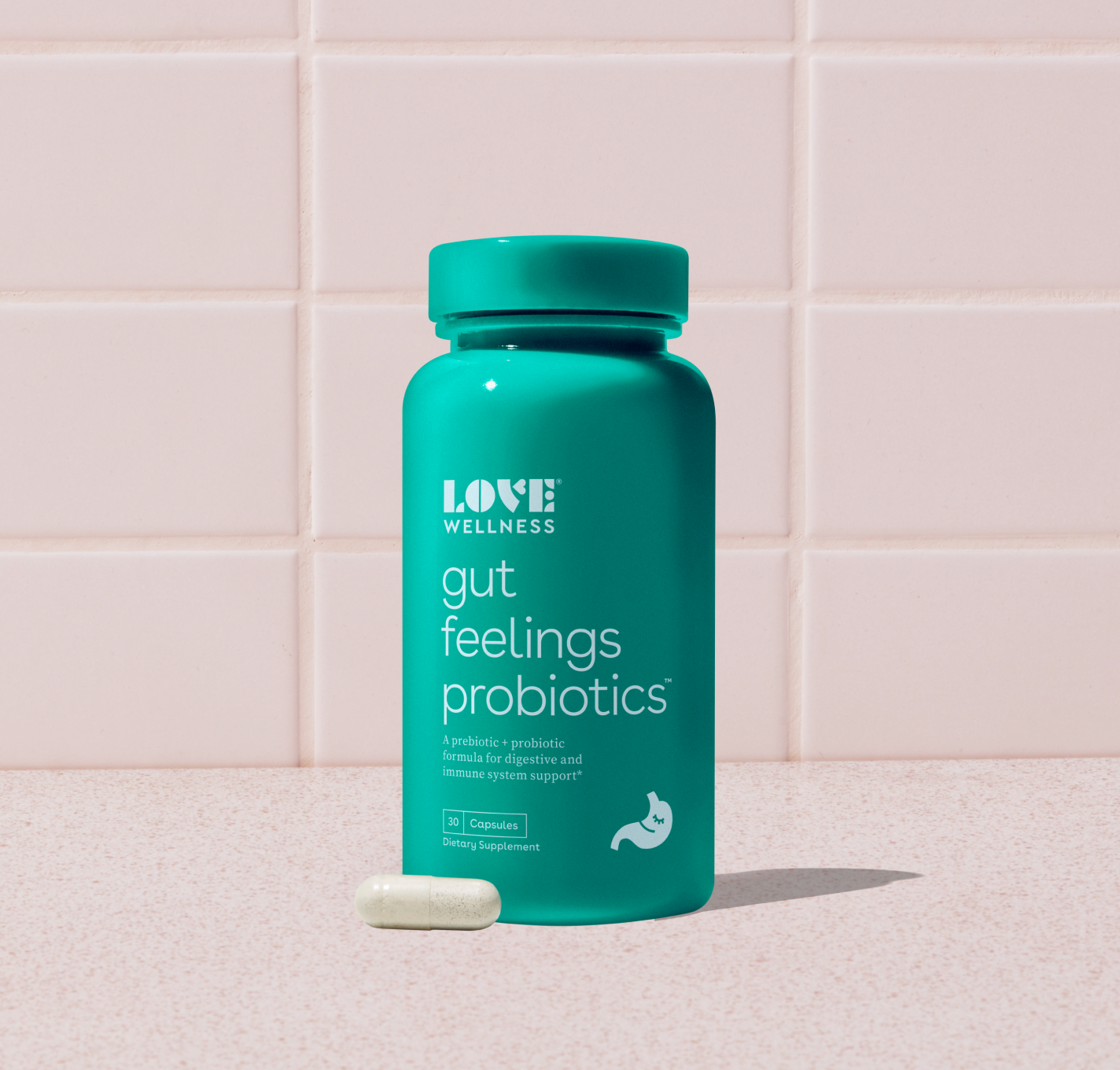
Or 4 interest-free payments with Klarna.
Available for orders above $35. Learn more
A Final Word
Keep in mind that healing your digestive system will take time, dedication, and consistency. Your gut microbiome didn’t magically become unhealthy overnight — so you aren’t going to fix it overnight either.
Eating a clean diet will go a long way in getting you on the right path to achieving optimal gut health — you just have to stick with it!
Don’t forget to reach for probiotic- and postbiotic-rich foods to support you on your gut healing journey. We also recommend our Probiotics Kit — a healthy dose of probiotics for your skin, gut, and vagina. Simply take one serving of each supplement per day to balance, optimize and calm your gut.*
At Love Wellness, we’re on a mission to create the best women’s wellness and personal care products on the planet. Made with good-for-you ingredients and nothing artificial, our doctor-developed solutions are designed to heal bodies — not change how they look or smell.
Whether you’re dealing with less-than-favorable digestive woes, questionable odors from down there, or unbearable PMS symptoms, you can always count on us to have your back.
Ready to feel comfortable in the skin you’re in? Check us out today.

Or 4 interest-free payments with Klarna.
Available for orders above $35. Learn more
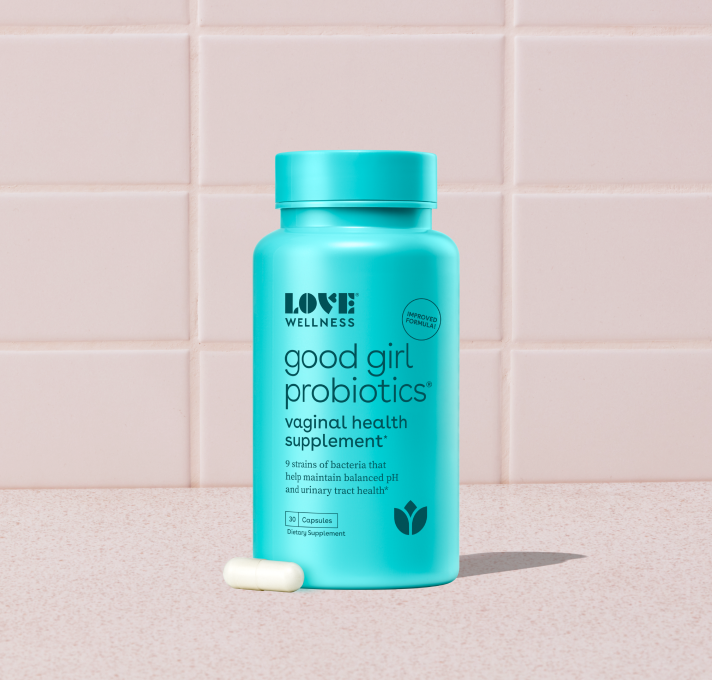
Or 4 interest-free payments with Klarna.
Available for orders above $35. Learn more


